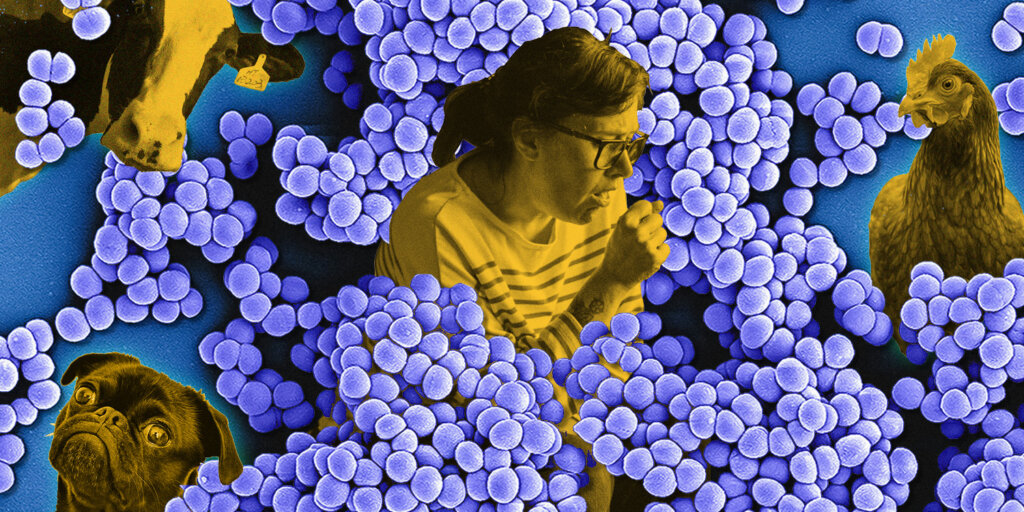Home » The Silent Pandemic: The Consequences of Antibiotic Misuse
The Silent Pandemic: The Consequences of Antibiotic Misuse

Antimicrobial resistance (AMR) is a pressing global health crisis that leads to approximately 1.3 million deaths annually, a figure projected to rise to 1.9 million by 2050. It poses a significant risk to a century of medical advances, making what are currently manageable infections potentially life-threatening. The issue stems from the overuse and improper application of antimicrobials in humans, animals, and agriculture, accelerating the evolution of resistant pathogens.
Microbes inhabit various environments, including our bodies and everyday surfaces, and while many are harmless or beneficial, pathogenic microbes are becoming increasingly resistant to treatment due to misuse of antibiotics. This resistance complicates the treatment of infections and has resulted in the resurgence of diseases once thought eradicated. Tackling this crisis requires coordinated efforts among doctors, veterinarians, policy-makers, and the general public, emphasizing a "One Health" approach that links human, animal, and environmental health.
Low- and middle-income countries carry the highest burden of AMR, yet no region is completely insulated, including wealthier nations. Experts, including World Health Organization director Dr. Tedros Adhanom Ghebreyesus, emphasize that if AMR continues unchecked, it could reverse decades of medical progress. To combat this crisis, awareness and responsibility among all stakeholders are critical.
Antibiotic use must be judicious; they are essential for treating bacterial infections like tuberculosis and urinary tract infections but ineffective against viral diseases. Patients must follow prescribed treatment regimens to ensure complete eradication of harmful bacteria. Any leftover antibiotics should be properly disposed of to prevent misuse.
Several factors exacerbate AMR, including climate change, which fosters bacterial growth and increases disease spread. Additionally, inconsistent treatment protocols across various healthcare settings contribute to the problem, as patients may receive varying advice on antibiotic usage. As there’s no one-size-fits-all solution, the establishment of international guidelines is crucial.
In response to the AMR challenge, the WHO released the AWaRe Antibiotic Book to aid healthcare professionals in selecting appropriate antibiotics. Collaborating with Canadian startup Firstline, this initiative includes a mobile app to disseminate important AMR information to healthcare providers globally. Michael Long of Firstline acknowledges the complexity of prescribing antibiotics and highlights the value of evidence-based guidelines to mitigate risks and improve treatment consistency. However, he warns that those guidelines should be adaptable to local contexts.
Firstline also promotes responsible antibiotic use in veterinary medicine in collaboration with the Canadian Veterinary Medical Association. Experts like Dr. Scott Weese are developing VetAWaRe, targeting antibiotic management in agriculture and veterinary contexts. This initiative emphasizes the need for better infrastructure, increased veterinary access, and education concerning the use of vaccines to reduce the reliance on antibiotics.
Individuals without healthcare expertise can contribute to curbing AMR by respecting medical advice regarding antibiotic prescriptions. Pressuring healthcare providers can lead to unnecessary antibiotic use, which may have adverse effects. Trusting providers who make decisions based on evidence is essential for addressing the crisis effectively.
Raising awareness is crucial to fighting AMR, and resources like the MaRS podcast "Solve for X" offer insights into ongoing efforts against this global threat. Collectively, informed actions throughout society can help reverse the trajectory of antimicrobial resistance and protect public health.
MaRS Discovery District
https://www.marsdd.com/
MaRS is the world's largest urban innovation hub in Toronto that supports startups in the health, cleantech, fintech, and enterprise sectors. When MaRS opened in 2005 this concept of urban innovation was an untested theory. Today, it’s reshaping cities around the world. MaRS has been at the forefront of a wave of change that extends from Melbourne to Amsterdam and runs through San Francisco, London, Medellín, Los Angeles, Paris and New York. These global cities are now striving to create what we have in Toronto: a dense innovation district that co-locates universities, startups, corporates and investors. In this increasingly competitive landscape, scale matters more than ever – the best talent is attracted to the brightest innovation hotspots.


